

Prof Godwell Nhamo, Acting Head of Institute for Sustainability and Corporate Citizenship, and the Marine Studies CNA Lead (CEMS): Unisa
Opening day two of Unisa’s Catalytic Niche Area Research Symposium on 31 July 2025, Professor Tennyson Mgutshini, Executive Dean of Unisa’s College of Graduate Studies (CGS), remarked that the aim of the catalytic niche areas (CNAs) is to impact not only the university community, but also the national, continental and global spheres.
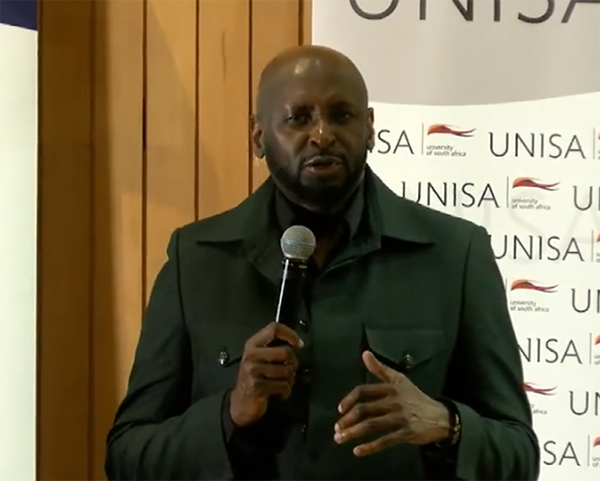
Prof Tennyson Mgutshini, Executive Dean of the College of Graduate Studies: Unisa
He added: “We must use Unisa’s historical impetus behind CNAs to articulate future directions, which include addressing the legacy of underrepresentation of equity priority groups within specific disciplines, giving structured attention to societal priority areas, and directing the university’s curriculum development and research agenda.”
Keynote speaker, Professor Godwell Nhamo, Acting Head of Unisa’s Institute for Sustainability and Corporate Citizenship, and the Marine Studies CNA Lead in the College of Economic and Management Sciences, focused his presentation on CNA 1: Marine Studies, themed “A model activating legacy research, teaching and engaged scholarship at Unisa and beyond”. He noted: “The CNAs are meant to transform societies for the better; therefore, research must be conducted for development and to enable innovation. To achieve the CNAs, as scholars, we need to work together to eradicate educational barriers and a silo mentality.”
Nhamo shared that an inter-college working group was established to develop a strategic document for CNA 1 through the awareness series of the College of Graduate Studies. He added: “Following extensive consultations with key internal and external stakeholders, including the Department of Forestry, Fisheries and the Environment (DFFE), the strategic document was finalised.” Nhamo explained that one of the recommendations from the document was for Unisa to establish a trans-, inter-, and multidisciplinary Institute for Marine and Coastal Innovations. “Accordingly,” Nhamo continued, “following document reviews and deliberations during a validation workshop, it was unanimously agreed that the Marine Studies CNA be amended to Marine and Coastal Studies. Once the relevant stakeholders ratify the amended name, rebranding will be required across various platforms.”
Speaking on Unisa’s footprint around the South African coast, Nhamo said that this presence should be used to the university’s advantage to ensure that it leads in marine and coastal studies, among others. Raising his concern that there are insufficient continental and global publications on marine and maritime studies, Nhamo encouraged relevant scholars to bridge the existing gap, and said that this can be achieved by a shared vision.
Nhamo further said: “Drawing from the global clarion call for the 2030 Agenda for Sustainable Development and its 17 Sustainable Development Goals, the Marine and Coastal Studies CNA focuses on a rallying point: to rise, engage, and leave nobody behind at Unisa.” Among others, he shared a strategic intent of flourishing, world-class, and empirically informed cutting-edge research and solutions on this CNA – valuing co-design, co-delivery, gender responsiveness, citizen science approaches, and product innovation in the service of humanity. “Our CNAs,” he continued, “align with Unisa’s mission and vision, and the systems thinking approaches must be embraced when we talk about these areas.”
Nhamo announced that six key laboratories are underway, including the Human-Centred Marine and Environmental Simulation Lab and the Autonomous Marine Monitoring and Robotics Lab, which will house subsidiary laboratories that are required to permit Team Unisa to compete and collaborate with universities locally and globally. In conclusion, Nhamo stated that Unisa and the DFFE will host an International Conference on Coastal, Marine, and Maritime Research in September 2026, themed “Advancing science, innovation, policy and equity within the UN Ocean Decade”.
* By Nancy Legodi, Acting Senior Journalist, Department of Institutional Advancement
** Photography by Shooheima Champion, Unisa Multimedia Office
Publish date: 2025-08-04 00:00:00.0
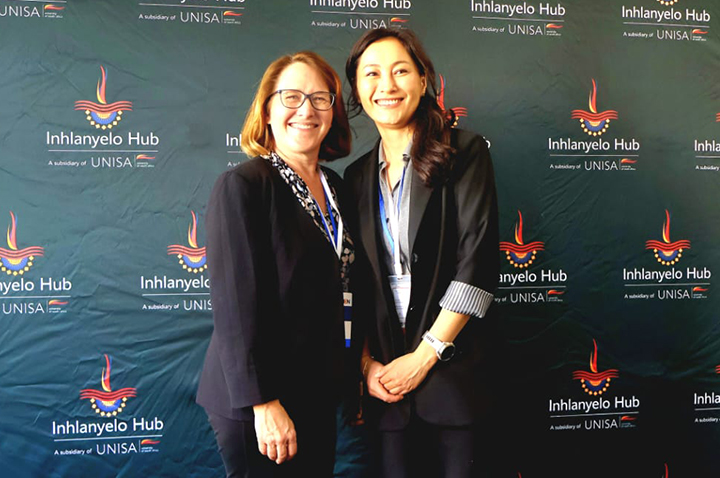 Unisa roundtable focuses on empowering SA women to lead in innovation
Unisa roundtable focuses on empowering SA women to lead in innovation
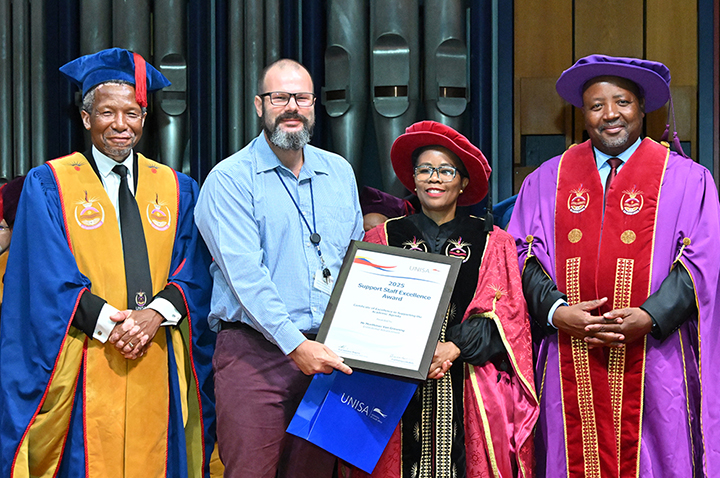 Unisan recognised for web excellence
Unisan recognised for web excellence
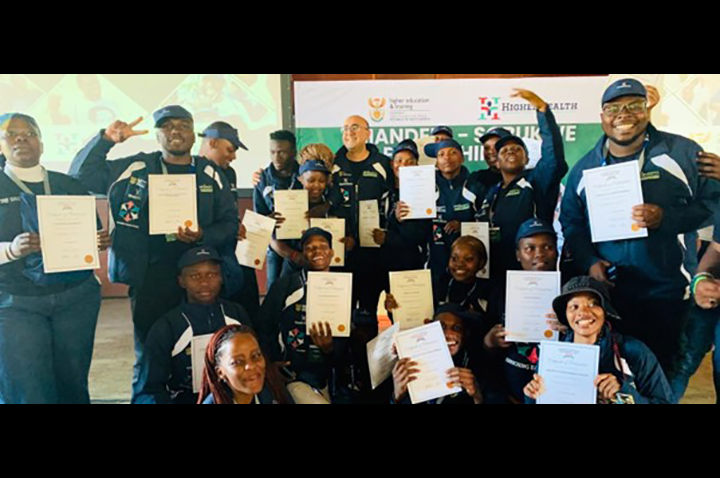 Office of the Dean of Students participates in leadership camp
Office of the Dean of Students participates in leadership camp
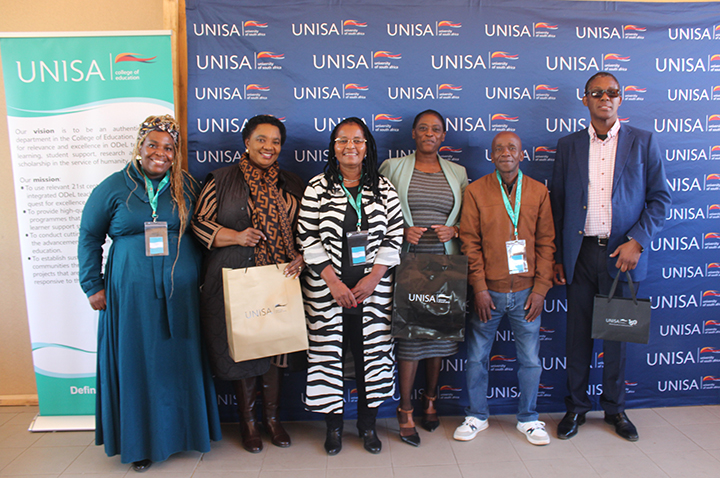 Unisa project fosters digital and pedagogical innovation in Limpopo schools
Unisa project fosters digital and pedagogical innovation in Limpopo schools
 Unisa student wins prestigious national leadership award
Unisa student wins prestigious national leadership award